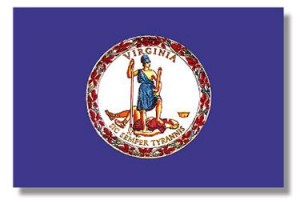
Qui Tam Partial Unsealing — Part II of a two part post
Today’s post is part two of a two parter discussing the qui tam partial unsealing by the government. Last time around we looked at what a partial unsealing means conceptually; today’s post discusses an additional reason or two why the government might seek a partial unsealing, and then focuses on what a partial unsealing means from a purely mechanical point of view.
Additional Reasons for the Government to Partially Unseal
In addition to the reasons I outlined last time, the government will sometimes seek a partial unsealing for other reasons; again, all of these developments are to be welcomed by the relator, but there is one reason that is most important.
The government is not limited to using the evidence and information produced by a relator in a false claims act case; rather the government can do anything within its power, including opening a criminal case. From time to time the government will find evidence and information so incredibly strong that it will want to begin a criminal investigation.
To that end, the government may find itself in need of a search warrant in a different district court. When that happens, the government will often seek partial unsealing so that it can share the qui tam complaint with a Judge in a different district.
Enough of the conceptual reasons — what are the specific mechanics of a partial unsealing?
The Mechanics of a Partially Unsealed Qui Tam Complaint
As I mentioned last time around, the seal exists for the protection of the government. That being said, qui tam/FCA cases are sealed via a court order, and any breach of the seal — even one by the government lawyers — would be contempt of court. Good lawyers don’t go around violating court orders; moreover, government lawyers would decrease the respect all of us have for the seal if they were to willy-nilly violate it at their leisure. So, before the government will disclose the existence of the qui tam to another living soul, they will ask for the court’s permission to do so via a motion for a partial unsealing.
It is perhaps easiest to define a partial unsealing by listing the things it is not. A partial unsealing is not permission for the relator to do whatever he or she wishes. A partial unsealing is permission for the government to disclose and/or discuss the existence of the qui tam case at specific times and/or specific places and/or with specific entities and/or individuals.
These specific individuals and/or specific places will most likely be outlined in the partial unsealing order the government gets entered. For example, the order might state “The relator’s Complaint is hereby ordered partially unsealed pursuant to 31 U.S.C. 3730(b)(2) so that the government can, in its discretion, share a redacted version of the Complaint with [insert here names of parties, etc.]
It is important to note that the government will always seek to keep the relator’s identity secret as long as possible; and they do, in fact, have ways of redacting a complaint such that it is impossible to tell who filed the complaint, even in the most personalized of cases.
And so that is about all there is to it folks…these things always appear more complicated and mysterious than they are in real life.